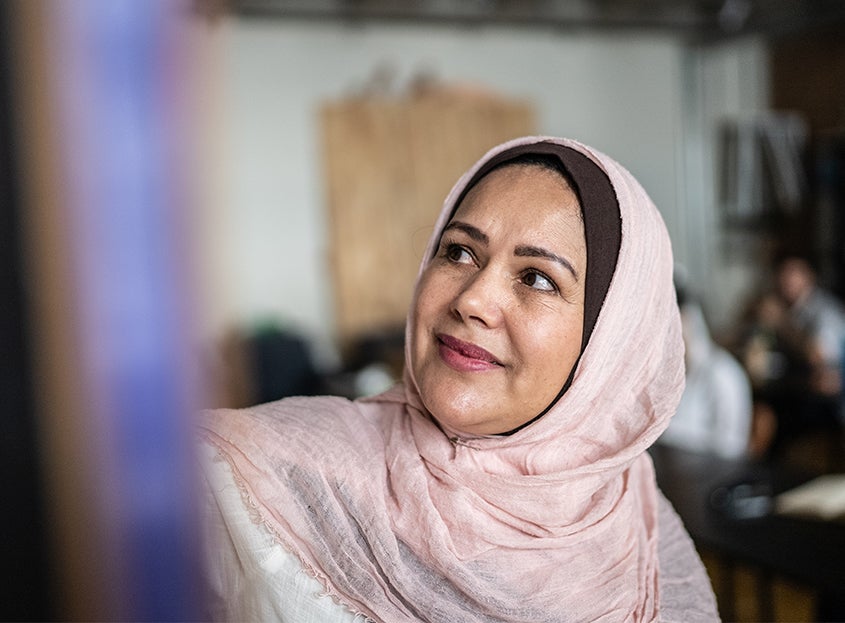Celebrating Black History Month 2023: ‘Saluting Our Sisters’ in Philanthropy

Every October, the United Kingdom celebrates Black History Month, an annual event honouring the historical and contemporary contributions of Black Britons. First celebrated in the UK in October 1987, Black History Month has since served as a platform for reflection on the rich history of Black culture in the UK as well as a call to address existing inequalities.
This year’s Black History Month holds special significance as it falls on the 75th anniversary of the arrival of the HMT Empire Windrush passengers in the UK. Those passengers, the so-called ‘Windrush generation’, played a pivotal role in shaping post-war Britain, and their contributions continue to influence the nation to this day.
The theme for Black History Month 2023 is “Saluting our Sisters”, a fitting tribute to the Black women that are—and have been—catalysts for change, sources of inspiration, and community-builders in the UK. Despite their central role in British history, Black women’s voices and achievements have often been marginalised. Having them at the centre of Black History Month celebrations this year is a call to recognize their impact and amplify their stories.
There is a rich history of Black philanthropy and volunteerism in the UK, and Black women have always demonstrated unwavering commitment to their communities, contributing to them not only financially but through sharing their time and expertise.
Black women like Mary Seacole, Olive Morris and Claudia Jones exemplified this spirit of philanthropy. They, along with so many others, led political revolutions, cultural shifts, and community improvements in the UK, but the significance of the Black female philanthropic landscape is not simply relegated to history. The stereotypical image of a philanthropist as an older white man no longer holds true, as the reality of the giving landscape today is much more diverse, and thankfully so.
Historically, the philanthropic sector has not seen significant funding directed towards Black communities and so, despite delivering vital solutions, many Black-led organizations have faced chronic under-investment. But contemporary Black philanthropy in the UK is rich and diverse, ranging from big donors to grassroots activism, and seeks to address this gap as well as many other areas of need.
Despite the impact created by Black philanthropists, these stories often go untold. While there are a few examples of widely publicised acts of philanthropy by high-profile Black celebrities like Marcus Rashford and Stormzy, the legacy of Black giving in Britain today remains largely hidden, and this is particularly true for Black women.
Initiatives like GiveBLACK, founded in 2019 by four remarkable Black women—Althea Efunshile, Yvette Griffith, Patricia Hamzahee and Sue Woodford-Hollick—aim to change this reality. They are not alone. GiveBLACK and other female-led organisations, like The Black Funding Network, are promoting philanthropy among Black people in Britain and significantly increasing funding to Black-led organizations.
On an individual level, Danielle Walker Palmour and Fola Komolafe are just two examples of Black women who are leading figures within the British philanthropic sector. Walker Palmour, the Founding Director of Friends Provident Foundation, has built an international reputation for innovative funding and advocating for equitable access to financial resources for marginalized communities. Fola Komolafe, who was recently appointed World Vision UK’s first female CEO, is not only an incredibly successful businesswoman and philanthropy advisor but an award-winning community activist too.
These women, and countless others, embody the spirit of British philanthropy. Ultimately, a more diverse community of philanthropists brings the variety of nuanced expertise and perspectives necessary to drive change. Their stories highlight the scale and breadth of impact that Black women are realising in the UK.
So, this October, while we salute our sisters for their immeasurable contribution to British society, we must also remember to recognise and amplify the efforts of contemporary Black female philanthropists in the UK, ensuring that their legacy is not just celebrated but built upon for future years to come.
NPT UK is not affiliated with any of the organisations described herein, and the inclusion of any organisation in this material should not be considered an endorsement by NPT UK of such organisation, or its services or products.
NPT UK does not provide legal or tax advice. This blog post is for informational purposes only and is not intended to be, and shall not be relied upon as, legal or tax advice. The applicability of information contained here may vary depending on individual circumstances.


